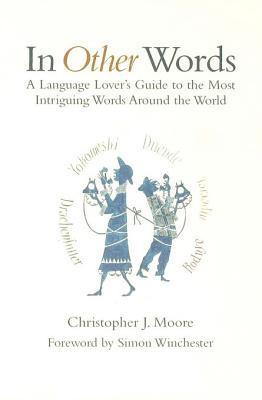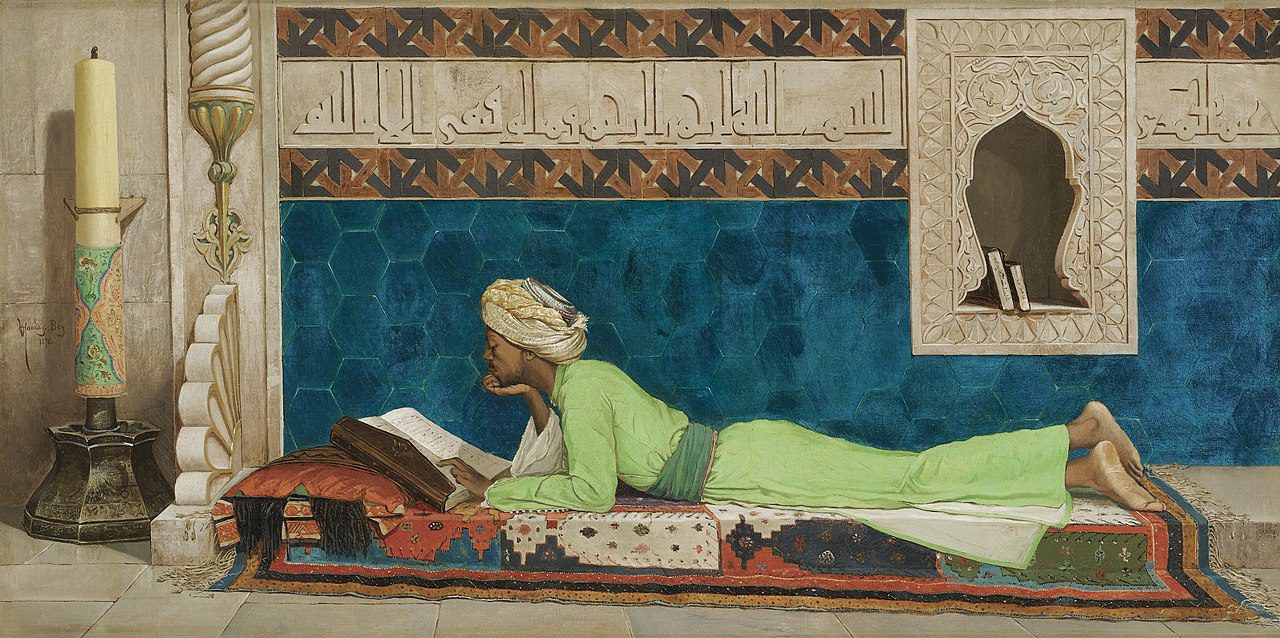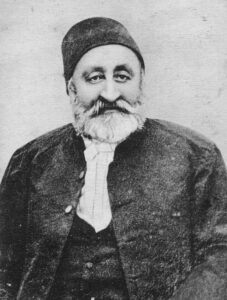By all accounts and appearances, the current popularity of the all-but-adopted, seemingly untranslatable word meraki in the English language can be traced back to Christopher J. Moore’s offbeat lexicon In Other Words, grandly—but not brashly—subtitled A Language Lover’s Guide to the Most Intriguing Words Around the World.
Published in October 2004 by Walker Books, the book was soon after excerpted by the NPR, and ever since, GoogleTrends has been showing a steady increase in search interest for the term “meraki.”
But what does the word actually mean? Where does it originate from? How is it used and in which contexts? Does its history—and apparent untranslatability—tell us anything about the complex evolution of human languages, or maybe even about the human experience itself?
This article delves into the meaning and origins of meraki, exploring its cultural and linguistic significance, as well as its usage and evolution in contemporary contexts.
The popular meaning of meraki (according to Moore)

Per its original blurb, In Other Words is “a unique collection of well-known and absolutely obscure ‘untranslatables'”—namely, “linguistic gems that convey a feeling or notion with satisfying precision yet resist simple translation.”
For the author, devoted linguist Christopher Moore, the feeling conveyed by meraki is actually just one of many which reflect “a unique Hellenic state of mind and emotion,” one that shows “you just can’t keep a good Greek’s feelings down.” For cultural reasons, the meaning of meraki can’t be pinned down into a single English word, but can still be satisfyingly outlined with about 60 of them:
meraki [meh-ra-kee] (adjective). This is a word that modern Greeks often use to describe doing something with soul, creativity, or love—when you put “something of yourself” into what you’re doing, whatever it may be. Meraki is often used to describe cooking or preparing a meal, but it can also mean arranging a room, choosing decorations, or setting an elegant table.
Origins: what language is the word “meraki” from?
While it is true that the modern Greek language uses meraki to convey the feeling described above—and probably just as true that it is wherefrom the term spilled over into English—the word is neither unique to Greek nor does it have have a Greek origin at all, let alone an ancient Greek one (contrary to what most machine-generated–under-researched–first–page–Google sources are claiming).
In reality, the Modern Greek μεράκι is a direct loanword from Ottoman Turkish, where the word is spelled مراق and pronounced “mer’ak” (with a long “a”), and usually means “curiosity” or “desire to learn.” When the word made its way into the Greek language, it acquired the “-i” at the end, which is the most common suffix in Greek for neuter nouns. Hence, meraki.
That same word—meraki with an i—exists in Turkish too, but it seems to be an obsolete term. Not that long ago, however, it was still in literary use, if only restrictedly; case in point, Meraki is precisely how the title of Molière’s comédie-ballet Le Malade imaginaire was first translated into Turkish by Ottoman statesman Ahmed Vefik Pasha, in 1879.
It may seem that we’re getting off on a tangent here, but we’ll get back to this, we promise; it may not seem like it at this point, but it is relevant.
Tracing the linguistic and symbolic roots of meraki
It’s difficult to say when the word meraki took on the modern meaning (which is, arguably, what it owes its popularity to), but the online edition of Sevan Nişanyan‘s rather authoritative Etymological Dictionary of Contemporary Turkish may hold some important insight. Among other things, it challenges the idea that meraki expresses “a unique Hellenic sentiment,” as it appears that the word meant something akin to “doing something with love” even before it entered the Greek language.
According to Nişanyan, the modern Turkish word merak can be traced back to the Arabic word مرقّ/مراقّ, maraḳḳ, which in turn comes from the Arabic root rḳḳ, meaning “the sensitive part of the stomach, the spleen.” Indeed, that’s the meaning Meninski‘s multi-volume 1680 Turkish-to-Latin dictionary gives for the word meraḳḳ. Full two centuries later, Sir James Williams Redhouse‘s still influential Turkish and English Lexicon also gives, as one of the meanings for meraqq, “the part of the surface of the abdomen between the navel and the groins.”
Now, as an organ, the spleen was often—and in various different cultures—associated with sensitiveness and melancholia, owing to the impact of ancient Greek medicine and its doctrine of humorism. As a word, though, it was also the idiomatic and symbolic equivalent of “the heart” in modern English. Via Persian polymath Avicenna, both the theory of humorism and the notion of “the spleen” reached the Arab world. From there, they were further disseminated throughout the Islamic world and eventually made their way into Ottoman Turkey.
The 18th century: a radical shift in meaning
Until the end of the 17th century, the word merak was rarely encountered across the Ottoman world—aside, we might guess, from fairly specialized medical textbooks (where it meant “spleen” or referred to that tender part of the abdomen) or astronomical treatises (where it denoted—as it still does, internationally—one of the brightest stars in Ursa major, on account of the star’s position in the constellation: the loins of the Great Bear).
But then, during the 18th century, the word underwent a radical change of meaning, perhaps due to it being newly derived from the Arabic word riḳḳat. Rikkat, among many related things, can mean “fragileness,” “softness,” and “tender-heartedness,” all of them qualities associated with the spleen (think “the heart,” in modern English parlance) and, by way of association, with excessive sensitivity, emotional softness, and melancholy.
As these qualities slowly came to acquire positive meanings in Ottoman Turkish society, the word merak began to take on a new connotation too.
The 19th century: the romanticization of merak
Between 1839 and 1876, Ottoman Turkey underwent a period of significant reform and modernization, known as the Tanzimat era. The Tanzimat reforms were driven by the need to modernize the Ottoman Empire and bring it in line with the political, economic, and cultural developments of Western Europe. As a result, Turkish sensibility came under the influence of Romanticism and Symbolism, the two dominant intellectual movements of 19th-century Europe, both of which expressed a strong preference for emotion, authenticity, individuality and refinedness.
Now, etymological excavation is sometimes a shady endeavor—and we’re no experts, by any means—but it’s not difficult to imagine how the changing cultural and intellectual climate of Ottoman Turkey might have contributed to the emergence of the modern concept of meraki. With its connotations of fragileness, softness, and sensitivity, the word merak—hitherto an unfavorable or, at best, neutral adjective—may have come to be seen as an important element of the Romantic and Symbolist artistic sensibility in Ottoman Turkey, and this may have slowly redefined its meaning to now denote a kind of refined, passionate, and even obsessive devotion to a particular interest or activity.

At the time, in Western Europe, to spend time with one’s thoughts or to indulge in solitary activities was also becoming increasingly popular among artists, writers, and intellectuals, as they all sought to do something people hadn’t done before—explore their inner lives and emotions. This cultural shift towards individualism and self-expression may have influenced the emergence of merak as a positive and desirable trait in Ottoman Turkey as well. Put simply, as melancholy became trendy and reflective of individualism and wisdom, so did merak.
And so, by the middle of the 19th century, merak had come to refer to a state of pleasurable sorrow or Hamletian wistfulness; in this sense, it might have meant something akin to the Romantic concept of “nostalgia.” Concurrently (probably due to further Arabic influence), the word seems to have also come to refer to a state of intense desire or curiosity, particularly in the context of intellectual pursuits or artistic endeavors. In this sense, the word may have meant something similar to the English words “zeal” or “fervor”—albeit with a more emotional and intense connotation.
The conflicting meraks of the Grand Vizier, Ahmed Vefik Pasha

Now, it’s finally time to go back to Ahmed Vefik Pasha. We introduced him before as an Ottoman statesman—and, indeed, he was twice the Grand Vizier of the Ottoman Empire—but he was actually so much more than this: reformer, scholar, playwright, founder of the first Ottoman theatre in modern history. Fluent in French, he was also a capable translator—ergo, his adaptation of Molière’s Le Malade imaginaire. In English, the title is usually translated as The Imaginary Invalid, although a more accurate translation would be The Imaginary Patient. Vefik Pasha opted for Meraki in the title. Why?
The play, the last work of Molière, is a musical comedy in three parts which follows the story of a naïve hypochondriac named Argan who imagines himself to be ill and spends all of his time and money on doctors and medicine. In French, the title is a brief description of the protagonist’s character; if Meraki described Argan too, then the word couldn’t have meant “the one who is excessively curious,” as a modern speaker of Turkish might expect. Rather, it must have meant “the one whose heart/spleen is sick” (as opposed to his body), that is to say The Melancholic or even better, The Downhearted One.
There’s another reason why this translation seems better suited. Namely, just three years before Vefik Pasha published his translation of Le Malade imaginaire, he published Lehçe-i Osmanî (“Language of the Ottomans”), a concise but rather seminal dictionary of Ottoman Turkish. In it, under merāḳ, there are several conflicting definitions given, including “spleen” (dalak) and “love” (sevda), and “sometimes mania and even madness.” “Still sometimes,” writes Vefik Pasha, “the word may mean resignation, affliction, or sorrow.” No mention of “curiosity” at all.
The first mention of this kind, to our knowledge, can be traced back to Şemseddin Sâmi‘s Turkish Dictionary (Kamus-ı Türki) of 1900. Still relevant and quoted—and available in two facsimile volumes online—the dictionary repeats most of the previous definitions, adding yet another one, as a second meaning of the word merāḳ: “the desire and effort to understand and learn something.” It also includes the French equivalent—curiosité. No ambiguity there.
One word, many meanings: recapping the evolution of merak
One way or another (and, most probably, by way of linguistic contamination and/or (in)volundatry confusion of Arabic influences) by the end of the 19th century, the once-denotative word for “spleen,” merak, had become a recognized dictionary term for a wide range of conflicting emotional states, most of them related to a deep and passionate interest in something.
Most commonly, the word could be used to describe an intense curiosity, and relatedly, refinedness and daintiness. However, it could also describe things such as heightened sensitivity, strong desire, or even a burning passion—in fact, in learned circles, this may have been the preferred meaning. Curiously, as Vefik Pasha’s translation of Molière demonstrates, merak was also used to denote emotional states at the opposite end of this spectrum, that is to say, the emptiness one is left with when their desires aren’t met or their love isn’t requited: sorrow, despondency, anxiousness, melancholy, spleen.
Well, that’s where it started, the story of merak, didn’t it? With the Arabic root for spleen. But then, as the spleen (idiomatically) became the heart, and the heart (artistically) became all that matters, merak evolved from designating sorrow and melancholy to denoting passion and joy. From sadness to gladness—what an unlikely linguistic evolution! Blame it—if blame you must—on cultural appropriation.
The modern meaning of merak: emergence, uses, idioms
Even deep into the 19th century, Ottoman Turkey was still a vast empire, ruling over large parts of Northern Africa and most of the Balkan Peninsula—and, accordingly, over a diverse array of cultures and languages. This diversity inevitably led to a blending of linguistic influences and the adoption—and corruption—of many Turkish words in other languages.
The word merak is no exception. Indeed, it’s present in most (if not all) modern Balkan languages, as different as some of them are from each other. Interestingly enough, whereas in modern Turkish (and, to some extent, in Albanian too) merak primarily means “curiosity” and “anxiousness,” in all of the other Balkan languages (Greek, Macedonian, Bulgarian, Serbian, Croatian, etc.), it generally means what Moore claimed it meant in Greek, back in 2004, in his charming little lexicon: longing, eagerness, desire, passion, labor of love.
It’s (not) all Greek to me: meraki in Modern Greek
Published in 1998 by the Institute of Modern Greek Studies, The Dictionary of Standard Modern Greek (colloquially known as the Triantafyllidis Dictionary after the name of a famous Greek educator and reformer) is one of the most comprehensive and authoritative dictionaries of the language. Its most up-to-date online edition points to the Turkish (via Arabic) origins of the word meraki, and lists the following definitions and synonyms for the word (pronounced, as already mentioned, meh-ráh-kee, and not may-rah-kee, as most of the internet claims):
- very strong desire (cf. yearning, πόθος/pothos): “I have meraki to go to Paris;” “If the child doesn’t have meraki for studying, don’t push him.”
- intense love and care for something, especially for a certain activity; (cf. taste/preference, γούστο/gousto): “Those craftsmen of old worked with meraki, not mechanically like modern builders.”
- (usually plural) intensely pleasant feeling which comes from having fun (cf. be in a good mood, κέφι/kefi): “Tonight he drank a little too much and went nuts/over the moon (merakia)”.
Someone who is characterized by meraki is called merakli, a pleasure-seeker. As linguist Nick Nicholas accurately points out, an even better way to describe a merakli in English is as “a bon vivant, a connoisseur, someone who knows how to have a good time and who appreciates the finer things in life.” The word can also be used as an adjective. So, in Greece, you can be merakli about your work, and also a merakli-cook or a merakli-tailor. In either case, this means not only that you really enjoy doing what you’re doing, but also that you can do it skillfully, thoroughly, with a lot of pleasure and happiness.
Merak in the Balkan Slavic languages—and a few interesting idioms
In the Balkan Slavic languages, merak (without the -i, or мерак in Cyrillic) denotes pretty much the same things as in Modern Greek. That said, in Slavic folk poetry, the word metonymically evolved to mean (albeit rarely) something entirely new: “a male lover.” Hence, there are Serbo-Croatian, Macedonian, and Bulgarian songs in which a girl may wait for her merak, just as there are a few informal phrases and idioms in which one may “have a merak” for something (i.e., “have an itch/an eagerness to do something”) or someone (i.e., “have an eye for someone,” “is passionate for/loves someone,” or even “yearns for someone”).
“To throw someone the merak” means “to set your heart on someone/something,” or even better, “to take a fancy to someone/something”—a nod to that other meaning of the word, dominant in Turkish: curiosity, interest. From there, if something is “for/after merak” than that something is “as wished,” “to one’s heart’s desires,” “according to one’s glad wishes and needs” (although, that same phrase can be used tongue-in-cheek, in which case it means the very opposite). If your merak passes, that means that you’re no longer keen on something. Hence, Slavic parents sometimes buy their children toys just so that their merak peters out—that is to say, “to get it out of their system,” to make them happy, to satisfy their curiosity and then move on.
To do something “without any merak” in the Balkans means to do it without any interest, joylessly. Conversely, saying that you’ve done something “with merak” means that you’ve done it with passion, with love, gladly and delightedly. If you’ve done the thing for somebody else, then you’ve also done it with a lot of soul and skill, as if for yourself, putting some extra effort into it, for no benefit but that of the beneficiary. It means that you’ve done it for the sake of it, with the entirety of your knowledge and being. Now, read the title once again.


